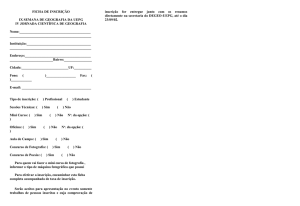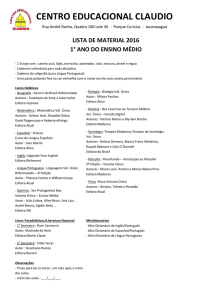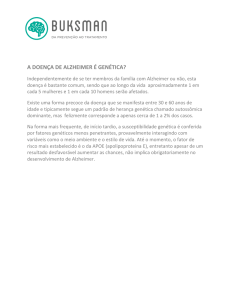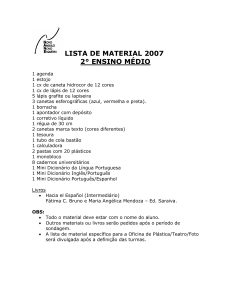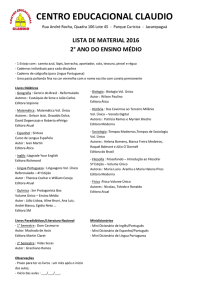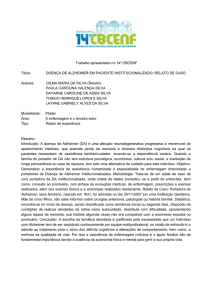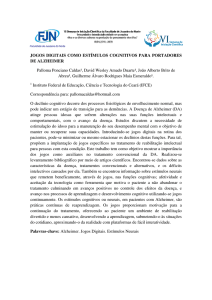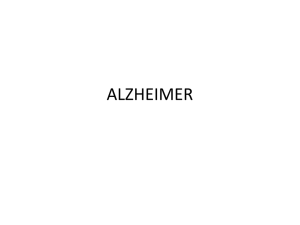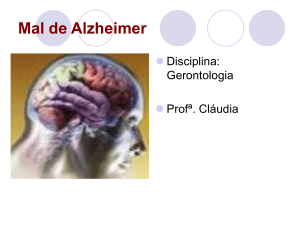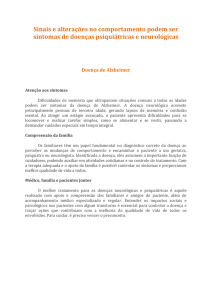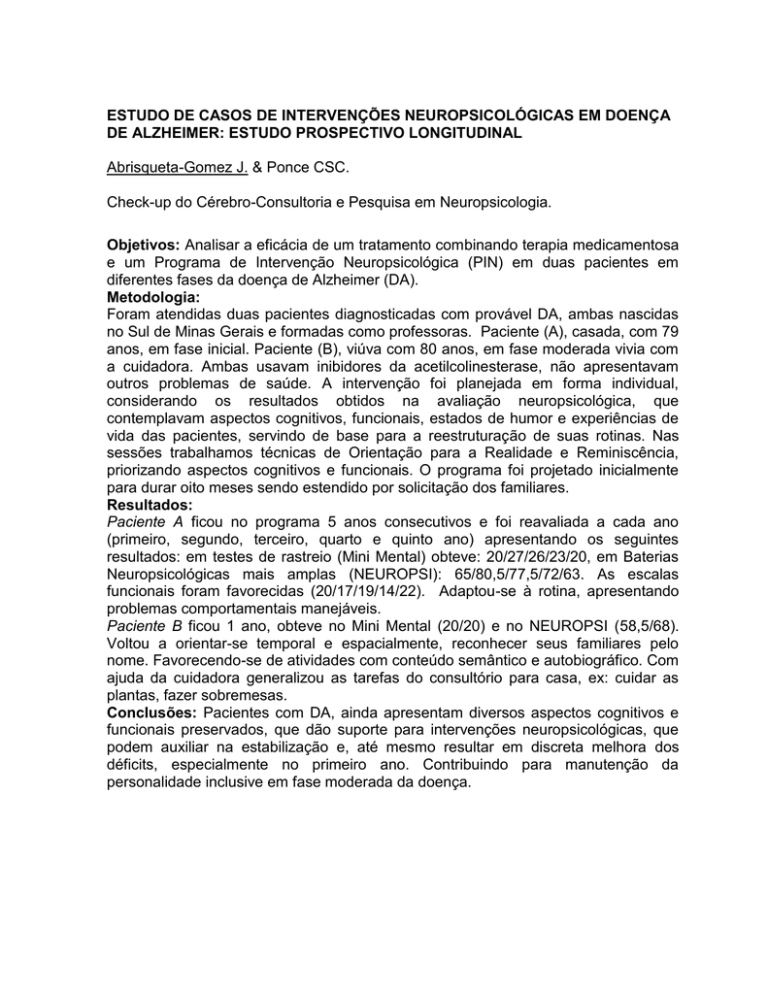
ESTUDO DE CASOS DE INTERVENÇÕES NEUROPSICOLÓGICAS EM DOENÇA
DE ALZHEIMER: ESTUDO PROSPECTIVO LONGITUDINAL
Abrisqueta-Gomez J. & Ponce CSC.
Check-up do Cérebro-Consultoria e Pesquisa em Neuropsicologia.
Objetivos: Analisar a eficácia de um tratamento combinando terapia medicamentosa
e um Programa de Intervenção Neuropsicológica (PIN) em duas pacientes em
diferentes fases da doença de Alzheimer (DA).
Metodologia:
Foram atendidas duas pacientes diagnosticadas com provável DA, ambas nascidas
no Sul de Minas Gerais e formadas como professoras. Paciente (A), casada, com 79
anos, em fase inicial. Paciente (B), viúva com 80 anos, em fase moderada vivia com
a cuidadora. Ambas usavam inibidores da acetilcolinesterase, não apresentavam
outros problemas de saúde. A intervenção foi planejada em forma individual,
considerando os resultados obtidos na avaliação neuropsicológica, que
contemplavam aspectos cognitivos, funcionais, estados de humor e experiências de
vida das pacientes, servindo de base para a reestruturação de suas rotinas. Nas
sessões trabalhamos técnicas de Orientação para a Realidade e Reminiscência,
priorizando aspectos cognitivos e funcionais. O programa foi projetado inicialmente
para durar oito meses sendo estendido por solicitação dos familiares.
Resultados:
Paciente A ficou no programa 5 anos consecutivos e foi reavaliada a cada ano
(primeiro, segundo, terceiro, quarto e quinto ano) apresentando os seguintes
resultados: em testes de rastreio (Mini Mental) obteve: 20/27/26/23/20, em Baterias
Neuropsicológicas mais amplas (NEUROPSI): 65/80,5/77,5/72/63. As escalas
funcionais foram favorecidas (20/17/19/14/22). Adaptou-se à rotina, apresentando
problemas comportamentais manejáveis.
Paciente B ficou 1 ano, obteve no Mini Mental (20/20) e no NEUROPSI (58,5/68).
Voltou a orientar-se temporal e espacialmente, reconhecer seus familiares pelo
nome. Favorecendo-se de atividades com conteúdo semântico e autobiográfico. Com
ajuda da cuidadora generalizou as tarefas do consultório para casa, ex: cuidar as
plantas, fazer sobremesas.
Conclusões: Pacientes com DA, ainda apresentam diversos aspectos cognitivos e
funcionais preservados, que dão suporte para intervenções neuropsicológicas, que
podem auxiliar na estabilização e, até mesmo resultar em discreta melhora dos
déficits, especialmente no primeiro ano. Contribuindo para manutenção da
personalidade inclusive em fase moderada da doença.
CASE STUDIES OF NEUROPSYCHOLOGICAL INTERVENTION IN
ALZHEIMER’S DISEASE: A PROSPECTIVE LONGITUDINAL STUDY
Abrisqueta-Gomez J. & Ponce CSC.
Brain Check-Up – Neuropsychology Consulting and Research
Objectives: To analyze the efficiency of a “combined treatment” acetylcholinesterase
inhibitor (AChE-I)+ Neuropsychological Intervention Program. (NIP) in patients with
Alzheimer’s Disease (AD).
Methodology: Two patients were diagnosed with probable AD. Both were born in the
south of the State of Minas Gerais, and graduated as teachers. Patient (A), married,
79 years old, in the early stage. Patient (B), widow, 80 years old, in moderate stage.
Both used AChE-I and not presenting any other health problem. The intervention was
planned individually considering the results obtained in the neuropsychological
evaluation which contemplated cognitive aspects, functional, mood and the patient’s
life, experiences, being the base for the restructuring of their routine. During the
sessions Reality Orientation and Reminiscences techniques were worked, having, as
priority, cognitive and functional aspects. The program was initially designed to last 8
months and it was extended due to family request.
Results: Patient A remained in the NIP for 5 consecutive years and was re-evaluated
every year (1st, 2nd, 3rd, 4th and 5th year) and presented the following results: Mini
Mental Status Examination (MMSE): 20/27/26/23/20 in wider Neuropsychological
Batteries (NEUROPSI): 65/80,5/77,5/72/63. Functional scales were favored
(20/17/19/14/22). Patient A adjusted to routine presenting manageable behavioral
problems.
Patient B remained in the NIP for 1 year and obtained in the Mini Mental (20/20) and
NEUROPSI (58,5/68). She regained time and spatial orientation and the ability to
recognize her family by the name, using activities of autobiographic and semantic
content. Using of the caregiver’s help she generalized the office tasks to home,
(taking care of plants, making desserts).
Conclusion: Patients with AD still present cognitive and functional preserved
aspects, which support neuropsychological interventions, and can help stabilize or
even result in a slight improvement in the difficulties especially in the first year.
Contributing to the personality maintenance even in the moderate phase.

